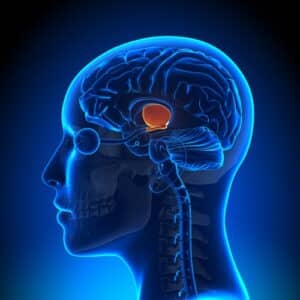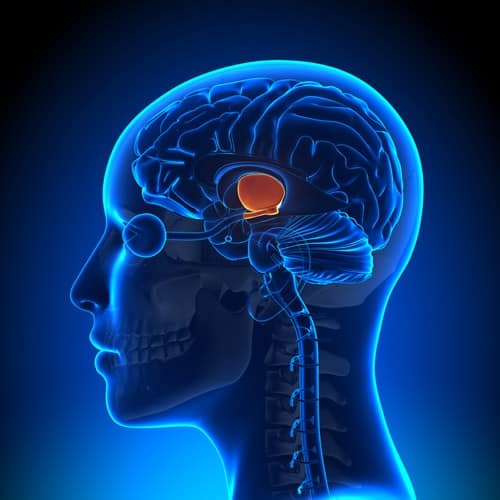
What causes brain tumors?
There are no direct causal links to why a person develops a brain tumor, and there are only a few known risk factors. One is children who receive radiation to the head have a higher risk of developing brain tumors as adults, as do people with rare genetic conditions. Age is another risk factor — people over 65 develop brain tumors at a rate four times higher than younger people.
A primary brain tumor is one that originates in the brain, but not all primary brain tumors are cancerous. Benign tumors are not aggressive and normally don’t spread, but they are still serious and can be life threatening, depending on their size and location in the brain.
How do I know if I have a brain tumor?
Symptoms of a brain tumor vary according to the type of tumor and location. Because different areas of the brain control different functions of the body, the tumor location will affect the symptoms.
A common initial symptom of a brain tumor is headaches that don’t respond to the usual headache treatments. Still, most headaches are not a sign of a tumor.
Other symptoms:
- Seizures
- Changes in speech or hearing
- Changes in vision
- Problems with walking
- Problems with balance
- Memory issues
- Numbness in the arms or legs
- Personality changes
- Concentration difficulty
- Weakness is one part of the body.
How we diagnose brain tumors
At Texas Neurosurgery we diagnose, and if possible, perform neurosurgery to remove brain tumors. During diagnosis, we ask questions about your symptoms and your family history, and then perform a physical exam. This includes a neurological exam.
If we suspect a tumor, we will advance to one or all of these tests: imaging tests such as CT scans or MRIs; or angiograms or MRAs, which involve the use of dye and x-rays of blood vessels in the brain. We may also take a biopsy.
If you have any of the above symptoms, please come see us at Texas Neurosurgery. Call us 214-823-2052.


